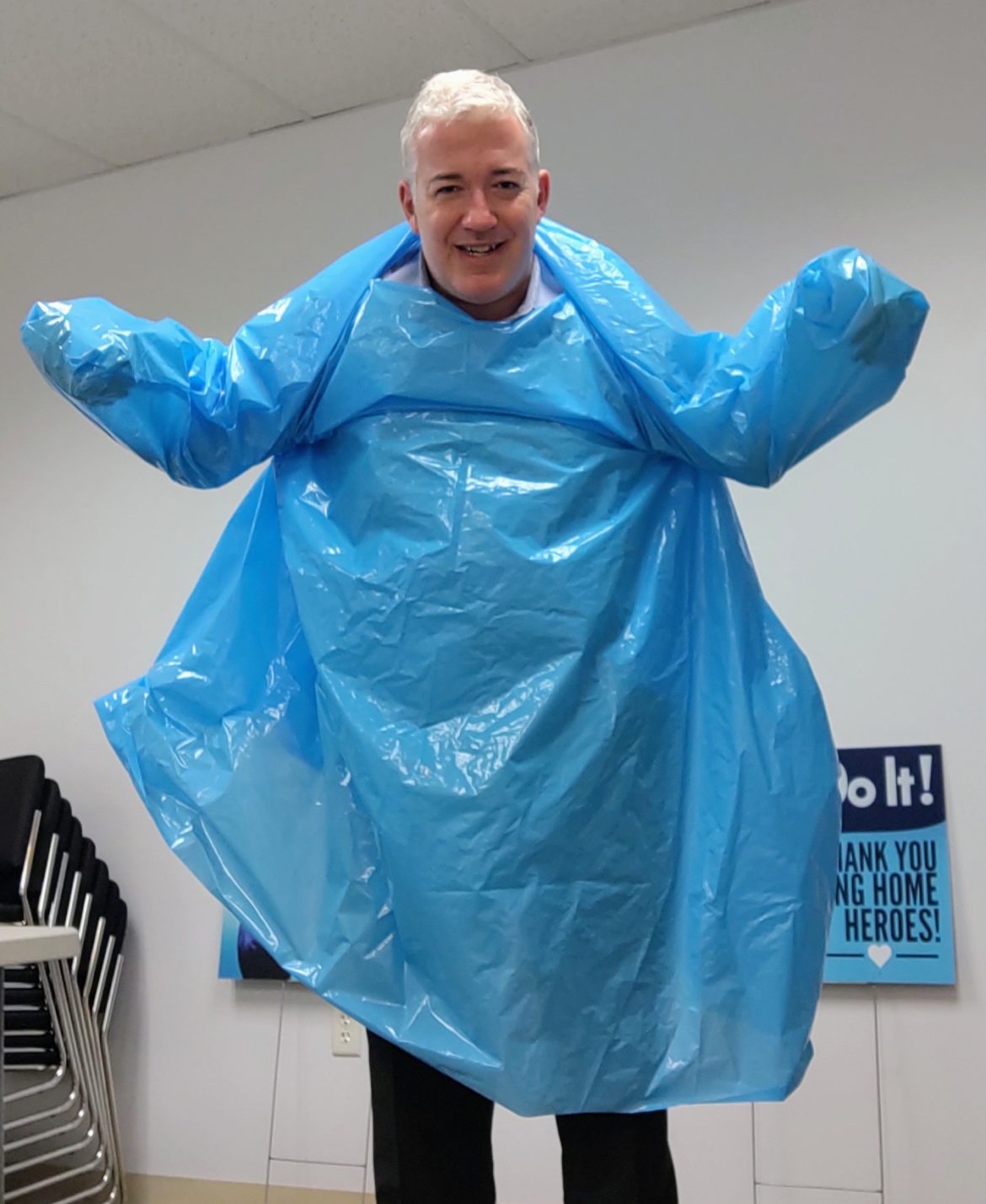By NANCY WEST, InDepthNH.org
The Committee to Study the Safety of Residents and Employees in Long-Term Care Facilities heard concerns Thursday about continuing funding woes and staff shortages in New Hampshire.
Brendan Williams, president and CEO of New Hampshire Health Care Association, which represents many of the state’s nursing homes, told the committee of the impact of COVID-19: “It’s just been a shattering experience for everyone.”
Williams said he is concerned that the state is holding back $200 million to $250 million of the $1.25 billion it received from the federal CARES Act when many nursing homes are experiencing serious financial problems now and some are still operating at only 50 percent capacity.
In New Hampshire the first $11 million of the $30 million Gov. Chris Sununu promised to nursing homes went to some nursing homes via grants, but also included long-term care facilities, Williams said. In the second round of grants, only 17 of 74 nursing homes received them, but many non-Medicaid long-term care providers did get grants, he said.
Williams said he has no clue what criteria the state uses in selecting grantees.
“We never got an explanation,” Williams said.
He suspects the state is “hoarding CARES Act funds in hopes of using them to backfill the state budget.”
“My concern is they believe they are going to get a dispensation to use the money to backfill the budget,” Williams said, adding he believes that is unlikely.
The money could help nursing homes and other businesses that need the money now, he said.
Hoarding the funds is too risky, he said. “Unfortunately, it is gambling with the lives of nursing home residents and staff and there are other needs in the state.”
The federal response to providing testing and personal protective equipment to nursing homes has been “absolutely shameful.” There still is no national strategy to deal with nursing homes even though 40 percent of COVID-19 deaths have been in long-term care facilities, he said.
In New Hampshire, long-term care facilities have accounted for 81 percent of COVID-19 deaths.
“Sadly, we did receive two weeks worth of personal protective equipment from the Federal Emergency Management Agency, but that equipment was defective. And the pandemic didn’t end in two weeks,” Williams said.
Williams made national news being photographed wearing the defective garb. “We’re running out of time,” Williams said to spend the CARES Act money.
Nursing homes have been shortchanged, Williams said.
The federal financial support for nursing homes has amounted to about 4.2 percent of healthcare funds, Williams said, and an attempt by Democratic U.S. Sens. Maggie Hassan and Jeanne Shaheen to fund $20 billion specifically for nursing homes never gained traction.
Williams also told the committee that the shift in testing at nursing homes from the state to the facilities themselves will likely be problematic since the state will pay $100 per test, which he doesn’t think will cover the cost, especially for smaller nursing homes that won’t be able to negotiate lower prices.
Right now, the state pays for testing all nursing home staff every 10 days and 10 percent of residents. In a month it will have shifted to self-directed testing, Williams said. That would look like: Week 1 100% of staff, Week 2 10% of staff, Week 3 10% of staff, Week 4 10% of staff and Week 5 100% of staff and continue in that pattern, he said.
The testing will still be PCR testing (anterior nares method) but facilities will have to make their own lab arrangements. Monthly they will invoice the state for costs. The state will reimburse up to $100 per test, Williams said.
“The concern is the tests may cost more than that – maybe $150-175,” Williams said.
The legislative committee studying nursing home safety has until Nov. 1 to file a final report and will meet weekly for next few weeks.
Sen. Jon Morgan, D-Brentwood, chaired the Zoom meeting Thursday. The next two meetings will be held remotely on Oct. 1 and Oct. 8, both at 10 a.m.
Rockingham County Commissioner Thomas Tombarello also testified Thursday, telling the committee his county is starting mandatory employee and nursing home resident testing today of about 550 people.
Tombarello said it was difficult to lock down the nursing home at first. The county was warned early on that they should buy 200 body bags and use office space for a makeshift morgue, none of which was needed.
“We were either lucky or good,” Tombarello said.
But the challenges continue. The loss of the extra $300 a week for workers at facilities that accepted Medicaid has added to staffing challenges.
“We really are short-handed at times…We’re about 80 nurses short,” Tombarello said.
Tombarello said he expects that is a problem that is being felt statewide.





